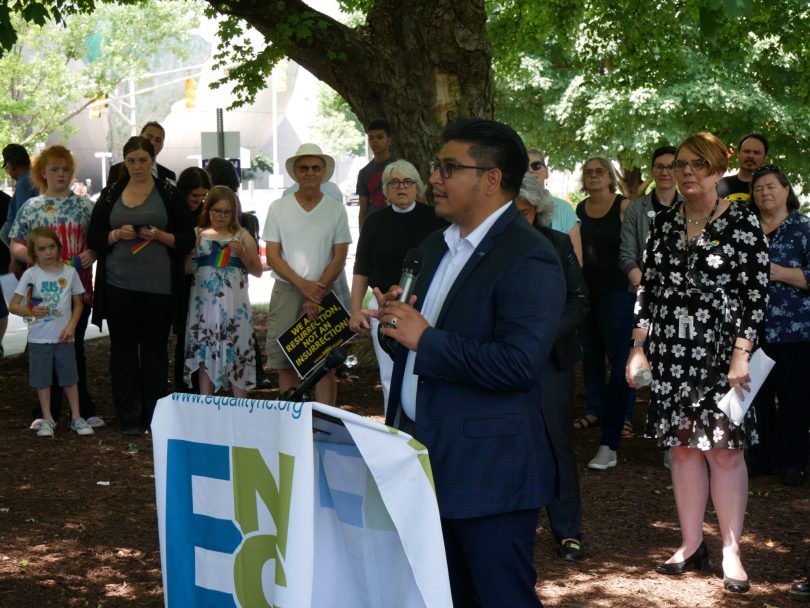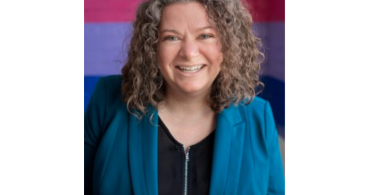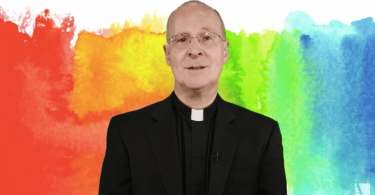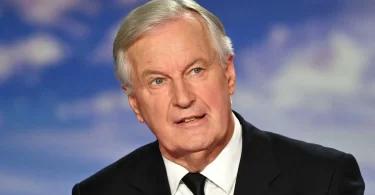Advocates and stakeholders gathered at the legislative building last Wednesday for an LGBTQ+ Advocacy Day which included meetings with members of the General Assembly to advocate for LGBTQ+ rights and protections, with special attention on protecting schools and students.
The advocacy day was hosted by LGBTQ+ rights nonprofit Equality NC, largely in response to legislation including three major bills which passed during the last long session.
“There were multiple anti-LGBTQ bills that were filed, three have become law,” said Eliazar Posada, interim executive director for Equality NC. “And today, we’re here to talk to our representatives about how that impacts our lives … and to talk about what we actually need: protection for our community, talking about how these bills impact our queer youth, how it’s limiting our access to health care, and above all, the fact that queer folks — LGBTQ folks — are part of North Carolina.”
The bills Posada spoke on include:
House Bill 808, which restricts access to gender-affirming care such as puberty blockers, hormone replacement therapy, or gender transition surgery to minors under the age of 18.
House Bill 574, which prevents transgender student athletes in middle school, high school, or college levels from playing on the sports teams most closely aligned with their gender, requiring students to play on the sports team matching their “reproductive biology and genetics at birth.”
Senate Bill 49, also known as the “Parents’ Bill of Rights,” which bans education on gender identity and sexuality in K-4 classrooms while requiring school employees to report any changes made about students’ names or pronouns to their parents.
Gaby Garcia-Vera of the 501(c)(4) La Fuerza spoke out against book bans and measures imposed by the Parents’ Bill of Rights which, among other things, requires school personnel to disclose to parents if their child changes their name or pronouns at school.
“These measures endanger young people and undermine the safety and dignity of all students,”Garcia-Vera said. “We oppose the mandatory outing policies in North Carolina’s schools, a tactic of shameful politicians showing their weakness and targeting vulnerable students.”
Garcia-Vera said North Carolina has a “troubling history” of targeting queer and trans individuals, referencing House Bill 2.
HB 2 was passed into law in 2016 and, in part, required public institutions like schools and state or local government facilities to mandate restroom use based on the sex listed on a birth certificate.
The bill generated significant controversy in the state and was eventually fully repealed in 2020.
“Despite the progress made by civil rights movements, our state continues to face discrimination and marginalization,” Garcia-Vera said. “Being treated equitably and receiving the same rights and protections under the law should be a given not just a luxury.”
Natalie Frazier, gender affirming care program director for Planned Parenthood South Atlantic, discussed the harms of banning gender affirming care for youth in the state.
“I see firsthand how life changing and life saving gender affirming care can be,” Frazier said. “I’ve also seen how devastating and harmful it has been for transgender and non-binary young people across North Carolina (to) have access to this care ripped away from them.”
The Human Rights Campaign issued its first ever state of emergency for LGBTQ+ Americans in June of 2023 due to recent legislation targeting LGBTQ+ individuals, said Rhys Chambers, senior regional organizer for the Human Rights Campaign.
“In North Carolina, we saw attacks on health care, education, and a kid’s ability to play sports with their friends without their very identity being called into question. But these attacks are not new, and they are not unique,” Chambers said.
The LGBTQ+ Advocacy Day’s featured speakers also included Rep. Julie Von Haefen, D-Wake, and Sen. Lisa Grafstein, D-Wake, who is the only openly LGBTQ+ member of the North Carolina Senate.
“It matters so much that we keep fighting this fight, because we are not making things better in this building right now,” Grafstein said. “We will one day — we’re not doing it right now — but we’re going to do it only because you get out here and fight every single day for the cause.”
The Equality NC event follows a proclamation Gov. Roy Cooper issued on June 6 declaring June as LGBTQ+ Pride Month in North Carolina.
Gov. Cooper makes remarks on June 14 at a reception acknowledging Pride Month and the work accomplished by LGBTQ+ pioneers. Laura Browne/EdNC
Cooper’s proclamation highlighted LGBTQ+ elders for their contributions to the community while emphasizing the need to support the aging population.
“This month, we celebrate LGBTQ+ North Carolinians who make our state stronger,” Cooper said in a press release. “We salute the pioneers whose decades-long fight for equality has brought great progress, yet we recognize that prejudice and hatred still persist and must not prevail.”
The press release said that Cooper “is committed to making North Carolina a safer and more inclusive place for everyone.”
Cooper’s proclamation was followed by a reception held at the Executive Mansion.
“North Carolinians know how discriminatory legislation hurts people, their families, and our economy,” said Cooper.
Cooper celebrated strides made by the LGBTQ+ community toward equality and the reception featured and honored North Carolina’s LGBTQ+ pioneers and elder leaders.
“North Carolina is stronger and more vibrant because of our LGBTQ community. From business to science to arts and food, government, politics, LGBTQ North Carolinians have made significant contributions to make our state the beautiful, thriving place that it is today,” Cooper said.







